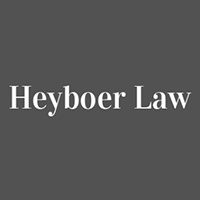Saint Clair County, MI RICO Act Lawyers
Sponsored Law Firm
-
 x
x

Click For More Info:
-
Hannawa Law PC
2909 E Big Beaver Rd Troy, MI 48083» view mapCriminal Defense Law Full-service legal experts on your side.
Whatever the specific details of your situation may be, our attorneys are ready to fight for you and guide you through every step of the process.
248-466-0770
Not enough matches for Saint Clair RICO Act lawyer.
Below are all Saint Clair lawyers.
David R. Heyboer
✓ VERIFIEDCriminal, DUI-DWI, Bankruptcy & Debt, Personal Injury, Real Estate
When you've been arrested and facing criminal charges, there can be serious consequences for you and your family. Don't face your criminal charges alo... (more)
Francesco L. Partipilo
Accident & Injury, Car Accident, Slip & Fall Accident, Workers' Compensation, Medical Malpractice
Status: In Good Standing
FREE CONSULTATION
CONTACTNicole M Winston
Accident & Injury, Slip & Fall Accident, Animal Bite, Car Accident
Status: In Good Standing
Frederick J. Lepley
Lawsuit & Dispute, Divorce & Family Law, Criminal, Accident & Injury, Class Action
Status: In Good Standing Licensed: 36 Years
FREE CONSULTATION
CONTACTFREE CONSULTATION
CONTACTBuzz Suuppi
Estate, Wills & Probate, Elder Law, Estate Planning
Status: In Good Standing Licensed: 16 Years
FREE CONSULTATION
CONTACTSteven L. Hill
Car Accident, Accident & Injury, Wrongful Death, Car Accident, Accident & Injury
Status: In Good Standing
Brian Jason Delekta
Trusts, Labor Law, Employee Rights, Contract
Status: In Good Standing Licensed: 15 Years
 Nickolas Hannawa Troy, MI
Nickolas Hannawa Troy, MI AboutHannawa Law PC
AboutHannawa Law PC

